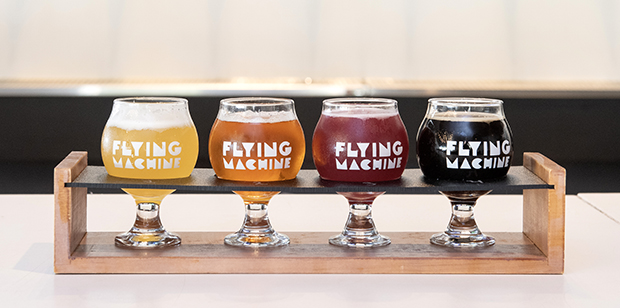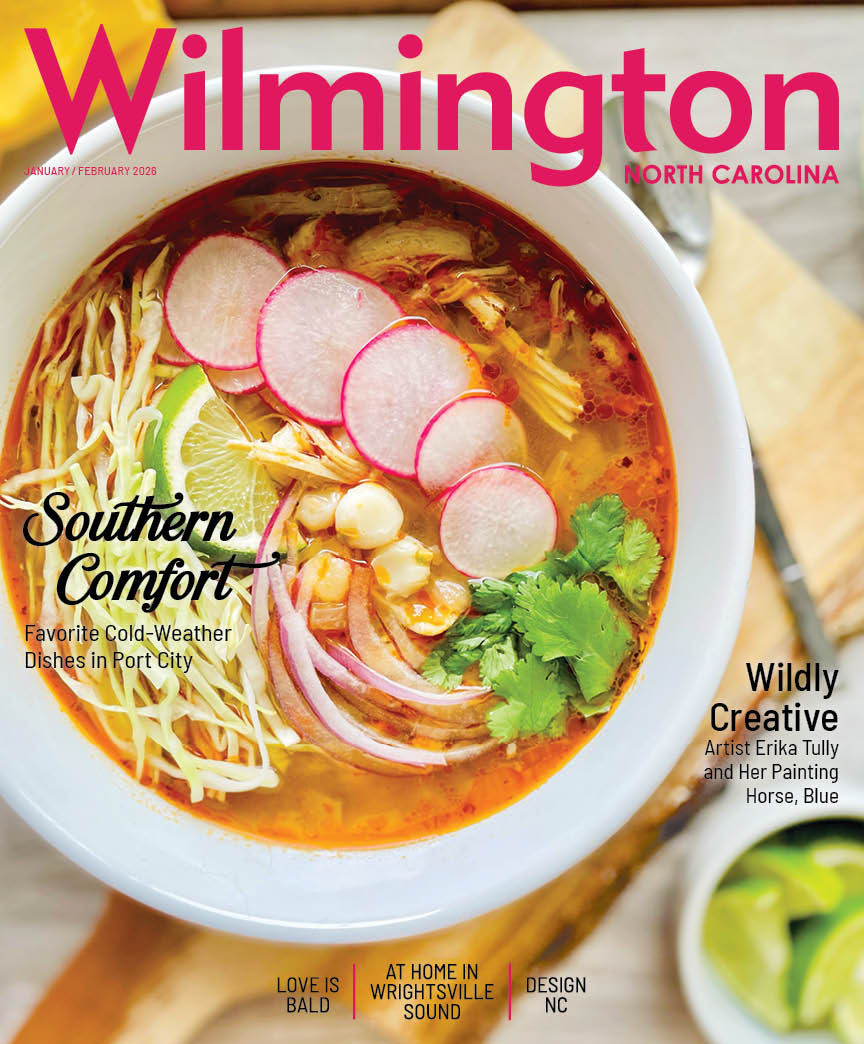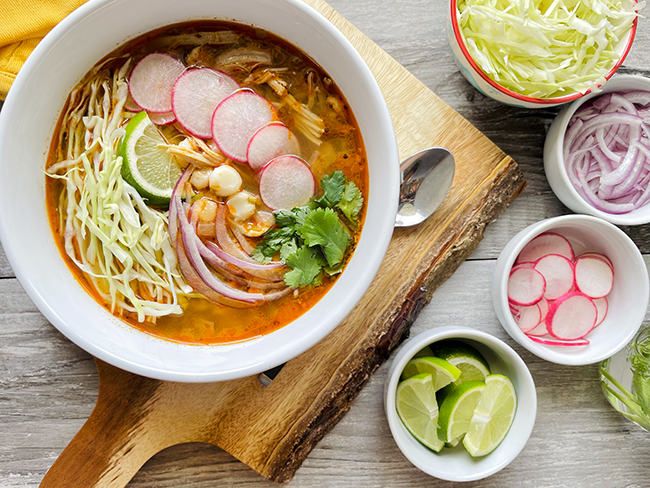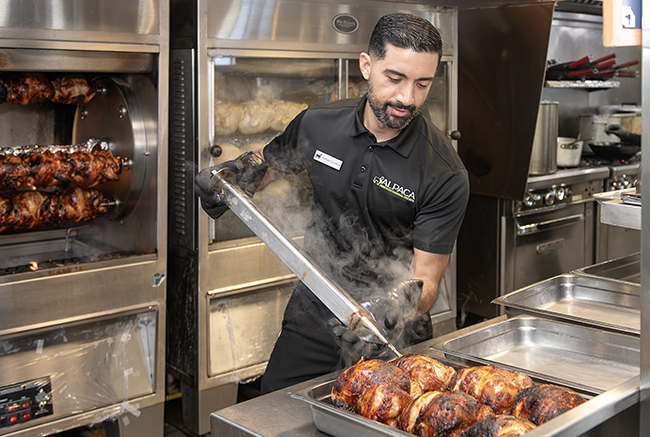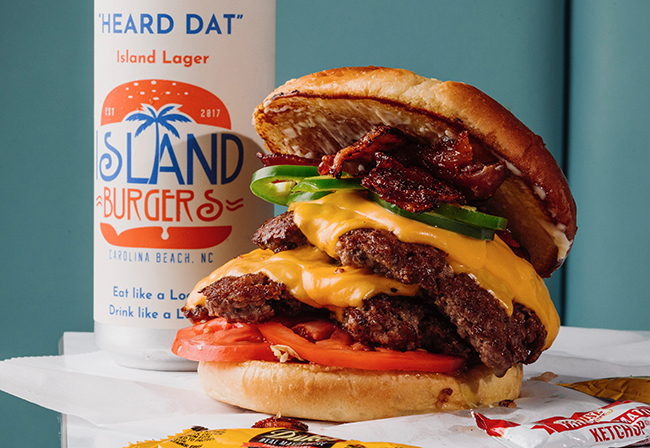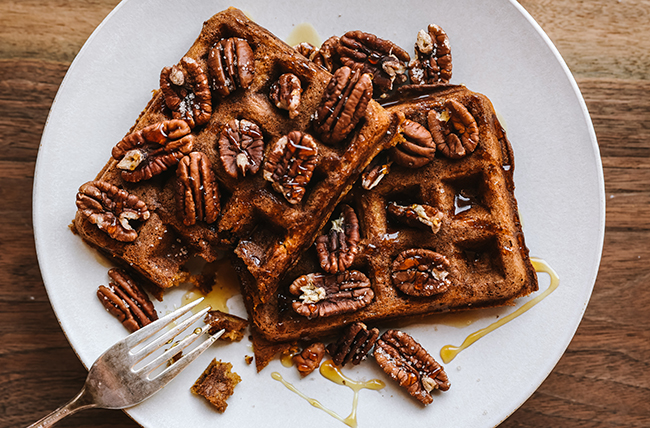Sip Something with a Story
04 Jan 2023
Savor sweet dessert wines in wintertime
By Ann Marie Thornton
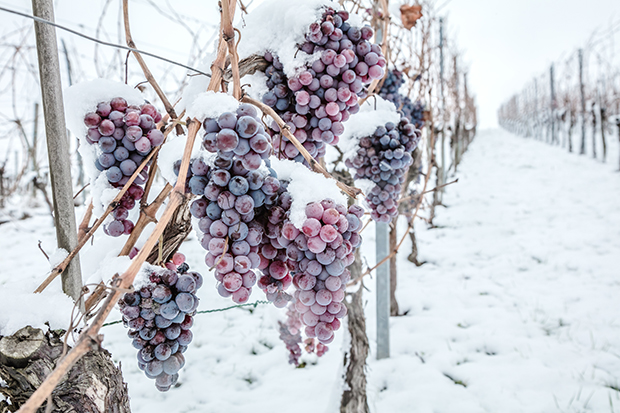
Every now and then, especially in the chill of winter, a rich, sweet wine is such an indulgence in flavor and texture. The thought of its opulent mouthfeel prompts reveries of what I might serve alongside it, perhaps a creamy blue cheese, maybe poached pears and crème anglaise, or bread pudding. Dessert wine is an experience, a mood that just has to be savored. Gathering with loved ones at the holidays and stretching the evening out is just a natural time to sip a sweet wine and revel in the moment.
Moscato d’Asti, a semi-sparkling, sweet wine from the Piedmont of Italy known for its captivating aromas of pear and peach, is typically low in alcohol, just about 5.5%, whereas most wines are 12-15%, making Moscato d’Asti a perfect aperitif or dessert wine. Muscat Blanc is one of the oldest grape varietals and planted the world over, and it achieves such grace and versatility in this DOCG region, the most elite classification in Italy. Well-known Asti Spumante is drier with more vigorous effervescence, whereas Moscato is sweeter and just gently effervescent. The 2021 Gianni Moscato d’Asti from Giovine in Canelli, a town in the heart of Asti, is pale, almost clear, and delightfully petillant with bubbles embracing the sides and gently rising from the glass. With a cascade of pear and honeysuckle aromas to make one swoon and a residual sweetness of about 95 grams per liter, this is a delicious way to open or close a celebratory evening with a bit of asiago or an almond cookie.
Mosacato d’Asti achieves its sweetness from controlled fermentation in chilled, pressurized tanks, notably, the Asti method, also used for Prosecco. The carbonation released naturally through fermentation remains in the wine and when it reaches an alcohol level of about five percent and still has much of its sweetness, the wine is filtered for stability and bottled.
The Noble Late Harvest 2018 from Rickety Bridge Winery in Franschhoek, South Africa, also uses Muscat Blanc grapes, ones that are hand-picked late in the season after their flavors have concentrated and intensified. These raisinated grapes lend sweetness and full mouthfeel and a deep, rich, golden hue. The wine, with a residual sugar of 56 grams per liter, has intense apricot, peach skins, tropical fruit, plus a whiff of petrol and a distinctive spiritous note that reminds me of fortified wines, even though this is a middle-of-the-road ABV of 13.5%. Very satistfying, one might pair with smoked salmon or aged cheeses for pure contentment.
Sauternes are a dessert wine from Bordeaux that uses even more intensely raisinated grapes. Vinters wait to harvest the grapes, Sémillon, sauvignon blanc and muscadelle, in the hopes they develop a late season Botrytis infection, hailed as “noble rot” since the fungus enables the distinctive, concentrated flavor profile of Sauternes. With its maritime climate, the terroir of the Sauternes region frequently experiences fog and mist in late autumn, and this dampness contributes to the ability of the fungus to take hold and infect the grapes. The 2015 from Chateau Saint-Vincent is light gold with honeyed ginger, intensely ripe cantelope melon, apricot compote, marmadale and candied pineapple, just a torrent of intense, unctuous syrupy fruitiness. Powerful enough to sip on its own, and a tour de force with blue cheese, fois gras or even apple tart-tatin. At under $25 a bottle, this Bordeaux is next level, and a testament to terroir and ingenuity.
The vintners of ice wine also embrace their terroir, often harvesting so late in the season that the fruit is already frozen on the vine, uber concentrating the sugars and flavors. While traditional eiswien is associated with Reisling and Vidal Blanc from Germany and Austria, in the past few decades, producers of wine and cider in Canada and New England have gotten creative about capturing these intensified flavors. Some producers use frozen apples, but others, such as Eleanor and Albert Leger, founders of Eden Ciders in Newport, Vermont, use naturally frozen apple juice. They embrace the terrior of their long cold winters and freeze apple juice out-of-doors in large containers and then ferment the super-concentrated must. Eden’s highly-acclaimed heirloom blend Vermont ice cider is a powerhouse coupling cryo-concentration with the intensity of bittersweet and heirloom apple varieties.
The complexity of the 2015 yields heady aromas of intense butterscotch, golden raisins, ripe figs and stewed apples. With 150 grams per liter of residual sugar, its layered tannic richness lingers dreamily. Its heft stands on its own yet vanilla ice cream, bread pudding or blue cheese would all vault up a notch alongside it. What a delightful gift extracted from the ice and snow! As autumn dwindles into wintertime, sip something with a story and reflect on the journey of this fruit through the seasons and into your glass. Soak in your surroundings, revel in the extraordinary flavors, and share with those you hold dear.

